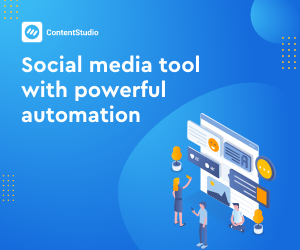General Advice
How AI Can Help Your SME Stay Competitive in a Rapidly Evolving Market

The world has been turned on its head lately, and small and medium-sized enterprises (SMEs) are feeling the pressure to keep up. The COVID-19 pandemic has caused SMEs to struggle as lockdowns and restrictions have caused significant revenue losses, and many businesses have been forced to shut their doors for extended periods.
It’s time for SMEs to take action and embrace emerging technologies like Artificial Intelligence to keep themselves ahead of the game. While some businesses are still in the low-to-moderate level of technological maturity, implementing AI can bring about crucial changes in productivity, efficiency, and cost savings. So, buckle up, and let’s take a closer look at how AI can help SMEs stay competitive in these challenging times.
Introduction of AI to SMEs
AI is becoming more accessible to startups and small businesses. This is happening through the democratisation of technology that makes AI more available to the general public. European startups are leading this trend, with one in twelve offering AI-based products or services. Intelligent process automation is now possible across various use cases, making it easier for more businesses to embrace the technology.
In addition, a new movement called the no-code movement is making AI more accessible to people who don’t have programming skills. This development is allowing people to experiment with AI and turn their ideas into reality. With more affordable machine learning solutions now available, the focus is on using these tools creatively. The question is how to safely integrate AI into businesses and make the most of this technology.

How SMEs Can Leverage AI to Stay Competitive
SMEs can benefit greatly from AI in many areas of their business. Here are some of the benefits that AI can bring to SMEs.
- Customer targeting and engagement – AI can help businesses target the right customers and provide a more personalised experience through chatbots and customer service automation.
- Sales support and coaching – AI tools can analyse sales calls and coach salespeople to improve their performance and better understand customer needs.
- Predictive analytics – AI can use predictive models to forecast sales trends and inform inventory management, allowing businesses to optimise their operations and reduce waste.
- Fraud detection and prevention – AI-powered fraud detection software can help businesses prevent financial losses by identifying suspicious transactions and flagging potential fraud.
- Supply chain optimization – AI can help businesses optimise their supply chain through real-time tracking and analysis, enabling more efficient logistics and reduced costs.
- Human resources management – AI can help streamline HR processes, such as resume screening and candidate matching, allowing businesses to find the best talent faster and more efficiently.
- Competitive intelligence – AI-powered competitive analysis tools can track competitors’ activities and provide insights into market trends and customer behaviour, allowing businesses to stay ahead of the competition.
What to look for when choosing an AI solution
Ease of Use and Implementation
Small business owners and their teams need a user-friendly AI tool that doesn’t require extensive onboarding and training. The AI tool’s ease of use should be a top priority when selecting one to ensure that the team can quickly adapt to the tool.
Scalability
Select an AI tool that can grow with your business. As your business expands, so does the amount of data that you need to process. Ensure that the AI tool you choose can scale to accommodate your data growth without affecting its performance.
High-Quality Support
Consider the AIaaS (Artificial Intelligence as a Service) provider’s support system that will help you onboard the tool and provide assistance throughout the entire journey. Ensure that the provider has a responsive and reliable support team to address any issues that arise.
Features and Capabilities
Select an AI tool that can perform the specific actions that you need, whether it’s natural language processing, image classification, or other features. The tool should have ample capabilities to enhance your business processes, save time, and increase efficiency.
Accuracy and Predictive Capabilities
Choose an AI tool that can provide accurate and reliable predictions. Some solutions may offer better prediction accuracy than others. It’s essential to consider the AI tool’s training data and labelling accuracy to ensure that you’re getting the most accurate predictions.
Speed of Development
AI is an evolving technology, and it’s essential to select an AI tool that’s up to date with the latest industry developments. The AI tool should update in line with industry advances and feature new updates to improve the accuracy and predictive capabilities of the tool.
The latest popularity of ChatGPT
ChatGPT is an AI conversational agent that mimics human-like conversations. It has a broad range of applications, including customer service, sales, and marketing. With ChatGPT, small businesses can automate customer service operations, saving time and resources while offering excellent customer support.
Moreover, ChatGPT can also assist small businesses in generating leads and increasing sales. For example, e-commerce businesses can use ChatGPT to engage customers and offer personalised product recommendations, resulting in increased customer satisfaction and a sales boost.
However, it’s crucial to remember that successfully implementing ChatGPT requires expertise and careful planning. Without the right approach, chatbots can become a source of frustration for customers and negatively affect the customer experience.
Final thought
The importance of AI for SMEs cannot be overstated. By leveraging AI, SMEs can stay competitive in today’s rapidly evolving market and achieve business success. However, it’s essential to remember that successful implementation of AI requires the right expertise.
SMEs should invest in skilled data scientists and AI experts who can help them implement AI tools effectively. These experts can help SMEs select the right AI tools, manage data sets, develop AI models, and integrate AI into their business operations. With the right expertise on hand, SMEs can fully realise the benefits of AI and avoid costly mistakes.
In the words of Andrew Ng, “Just as electricity transformed almost everything 100 years ago, today I have a hard time thinking of an industry that I don’t think AI will transform in the next several years.” As AI continues to transform the business world, SMEs cannot afford to fall behind. By investing in AI and having the right expertise on hand, SMEs can take advantage of this transformation and stay ahead of the competition.
Remember, AI is not just for large corporations. With affordable solutions available and the right expertise, SMEs of all sizes can leverage AI to achieve their business goals. Don’t wait – start exploring the possibilities of AI for your SME today!


